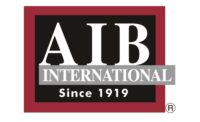Final rules for the remaining sections of the Food Safety Modernization Act (FSMA) that require rule-making will start rolling out in 2015. These rules will affect food companies, as they cover areas of a food program not previously regulated. We encourage all food companies to focus on these remaining sections and updated their plant programs to ensure they meet anticipated regulations.
- Section 103—Hazard Analysis and Risk-Based Preventive Controls
The proposed rule for this section was published in January 2013. Since then, additional rules related to this section have been released. In December 2013, FDA released a separate proposed rule titled “Focused Mitigation Strategies to Protect Food Against Intentional Adulteration.” Intentional adulteration was included in the original law for Section 103, but FDA chose to issue separate rules for unintentional and intentional adulteration. In September 2014, the supplemental rule for Section 103 was issued. In it, FDA proposed several revisions to the original rules for human and animal food.
- Section 105—Standards for Produce Safety (proposed rule published in January 2013; a supplemental rule released in September 2014)
- Section 111—Sanitary Transport of Food (proposed rule published in January 2014)
- Section 301—Foreign Supplier Verification Program (proposed rule published in July 2013; a supplemental rule was released in September 2014)
- Section 302—Voluntary Qualified Importer Program
- Section 303—Authority to Require Import Certifications for Food
- Section 307—Accreditation of Third-Party Auditors (proposed rule published in July 2013)
These sections are the most demanding on the food industry. Companies should designate dedicated resources to learn the details of the proposed and supplemental rules and conduct a FSMA gap assessment to determine where they need to go as an organization.
Preparing for FSMA’s final rules
At this time, companies should have a clear idea of what the final rules will entail. There may be modifications, but the release of the supplemental rules further clarified what companies can expect as of 2015.
Designated individuals in each company should be evaluating their company’s current food safety and food defense programs to determine their status. Here are a few major initiatives that bakers and snack producers should consider.
Companies should evaluate their current hazard analysis of raw materials and processes to ensure all hazards identified in Section 103 are evaluated and that risk-based preventive controls are in place. Existing HACCP programs will likely be insufficient.
The supplemental rule for Section 103 provided further clarification for the items listed above. A preventive control may not always need each activity.
Product testing and environmental monitoring are discussed in the supplemental rules. FDA has given some flexibility to both activities by stating “as appropriate to the facility, the food and nature of the preventive control.” It is imperative that companies determine what this means to them and where they should head with product and environmental testing. Typical snack food and bakery products are ready to eat and exposed to the environment during manufacturing—factors that indicate a need for an environmental monitoring program.
Supplier verification is now addressed in Sections 103 and 301. Companies must have a written program that covers both foreign and domestic suppliers. Evaluate section details to determine when and how supplier verification must be accomplished.
Evaluate sanitary food transportation, because it impacts receivers, carriers and shippers of raw materials, ingredients and finished foods for both human and animal consumption. Refrigeration, sanitation and co-cargo are key focus areas. Since this is the first time there have been food safety regulations for carriers, companies should make sure their carriers know about the pending rule, so they can prepare.
Most manufacturers, processors, packers or holders of food for human consumption in the U.S., along with foreign facilities, will need intentional adulteration (food defense) programs. Focus is on areas such as bulk liquid transport, bulk liquid storage and process steps where two or more raw materials are mixed. Bakers and snack producers will require a formal program to address these vulnerabilities.




